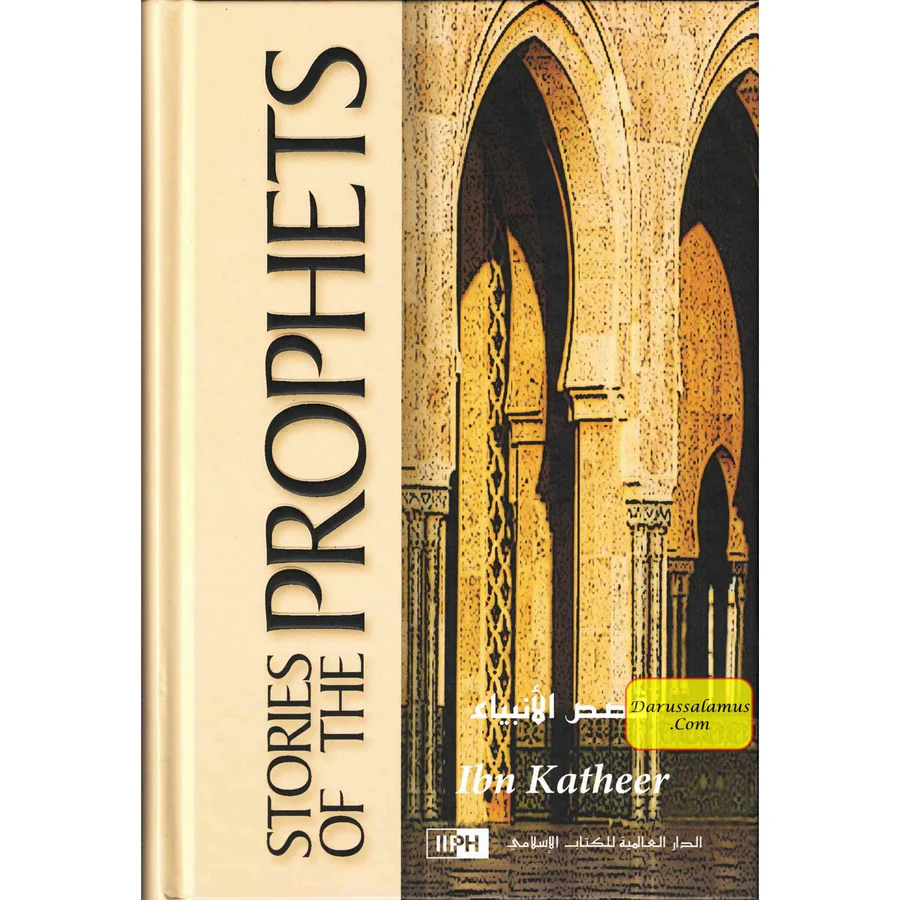Stories of the Prophets by Ibn Katheer unfolds profound insights into the lives of the prophets mentioned in the Quran. The masterbook, written by the Islamic scholar, Ibn Katheer, unravels the stories about these chosen people and thereby teaches its readers across generations lessons, inspiration, and insights.
We will discuss the importance of this work, the methodology followed in it, and the timeless lessons offered.
Ibn Katheer: A Sage in Islamic Scholarship
A Brief Introduction to the Author
Ibn Katheer was born in Damascus (1301–1373 CE), and his bibliography includes Tafsir of the Holy Quran, History, and Hadith. He made many contributions to the Islamic literature canon, especially with the Tafsir Ibn Kathir and Stories of the Prophets.
His scholarship is authentic and of meticulous approach while deeply committed to the truth. This is seen in Stories of the Prophets, as he utilizes resources from the Quran, authentic hadiths, and classical Islamic sources.
The Structure and Purpose of Stories of the Prophets
A Sequential Narrative of Prophetic Lives
The book presents stories of the prophets chronologically from Adam (AS), the first human and prophet, to Prophet Muhammad (SAW), the seal of the prophets.
Each chapter narrates the life of one prophet, emphasizing the hardships they faced and how they persevered with absolute belief in Allah. Stories are not only informative but also provoking to learn the qualities of patience and perseverance and reliance on Allah.
Methodology: Authenticity Meets Simplicity.
Quran as the Primary Source
Ibn Katheer draws primarily from the Quran for the material of the stories. Ayahs are referenced for authentication of the contents. This minimizes errors and irrelevancy.
Hadith and Historical Accounts
The author adds to the Quranic citations authentic hadiths and the knowledge of older Islamic historians. The integration of both sources gives an excellent perspective on all prophets’ lives.
Why Stories of the Prophets Resonates with Readers
Universally Relevant and Timeless
The stories capture a through-line across time and geography, dealing with issues such as monotheism, ethics, and the strength of humankind. These stories keep readers of different backgrounds inclined toward the lessons learned that can be applicable to the current scenario.
For example, the fact that Prophet Nuh (AS) remained in his devotion even during a flood and Prophet Ibrahim’s (AS) strongest faith in Allah makes the Muslims learn not to let go and yield.
1. Good vs. Evil
Stories have indicated the constant conflict between the forces of goodness and evil. The prophets were opposed by tyrants, disbelievers, and corrupted societies, yet they persisted in their ultimate endeavor to lead humanity.
2. Power of Tawheed
Each narration features the realization of the fact that the only one to be worshipped is Allah. The prophets strived to eradicate shirk and spread tawheed throughout their lives.
For instance, Prophet Ibrahim (AS) fearlessly challenged the prevailing culture of idol worship. This act became a legacy, keeping him in high regard for Allah throughout eternity.
3. Value of Perseverance and Patience
The sufferings faced by the prophets are a wake-up call that teaches the value of patience. Prophet Ayyub (AS) epitomized this quality by taking all the hardships silently.
Takeaway for Contemporary Readers
1. Resilience in Faith
The unshakeable faith of prophets in Allah teaches Muslims to not be deterred from their beliefs by the opposition of the world.
2. Acceptance of Modesty and Thankfulness
Prophets were humble in their triumph and thankfu l in test. These are some of the qualities that remind readers to remain humble and thankful under whatever circumstances is life’s course.
The Everlasting Sea of Prophets’ Stories
A Source of Inspiration for All Time
Stories of the Prophets has inspired Muslims for decades. This book connects readers to a wealth of history through which a reader can attain a sense of pride and belonging in being a Muslim.
A Resource for Teaching and Reflection
This book would be a fantastic resource for parents, educators, and students. It is a tool through which children learn an aspect of Islamic history and values in a most enjoyable, interesting, and relatable manner.
Why Every Muslim Should Read Stories of the Prophets
Be Enriched by the Meanings of the Quran
The Book narrates the context of Quranic verses; hence, it deepens one’s understanding and appreciation of Allah’s words.
Intensification of One’s Relationship with Allah
Reflecting on the lives of prophets reminds readers of Allah’s mercy, wisdom, and justice. Therefore, this should deepen their relationship with the Creator.
How Stories of the Prophets Addresses the Contemporary Issues
A Light in the Dark Times
The book teaches timeless lessons from the prophets, which help solve modern challenges. Whether it is dealing with injustice, fostering unity, or nurturing faith, the book provides its answers based on divine wisdom.
For example, Prophet Musa (AS) teaches society the importance of standing against oppression, a theme relevant to today’s societies.
Conclusion
Stories of the Prophets is more than a historical account. It is a treasure trove of wisdom, faith, and moral guidance. Each story is a reminder of Allah’s mercy, the resilience of His messengers, and the power of unwavering belief.
Whether it’s inspiration, education, or spiritual growth, this book is an essential addendum for your library. The study of their lives does not merely teach you but get closer to Allah and His message.
Read more: Tafsir as-Sa’di (Vol 1-10) Tafseer As-Sa’di By Abdul Rahman Bin Nasir As-Sa’adi



